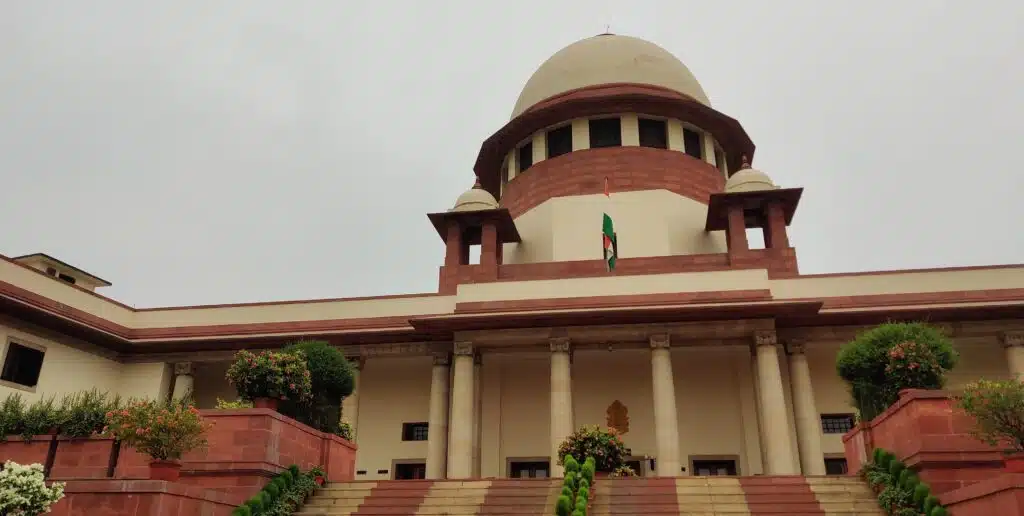
Indian Supreme Court Rejects Plea to Increase Undertrial Prisoner Visits in Delhi Prisons
The Supreme Court of India, in a recent judgment, dismissed a petition seeking an increase in the number of weekly visits allowed for undertrial prisoners in Delhi prisons. This decision underscores the ongoing debate about the rights of undertrial prisoners and the balancing act between judicial policies and constitutional guarantees.
Undertrial prisoners, individuals held in judicial custody while awaiting trial, currently have a legal limit of two visits per week in Delhi prisons. This policy, governed by Rule 585 of the Delhi Prison Rules, 2018, has been the subject of contention, leading to the filing of a Special Leave Petition (SLP) in the Supreme Court.
The SLP, a discretionary remedy under Article 136 of the Indian Constitution, was filed against a prior judgment of the Delhi High Court, which had upheld the visitation limits. The High Court’s decision was challenged through a Public Interest Litigation (PIL), advocating for an amendment to allow more frequent legal counsel interviews and to remove the cap on weekly visits.
The petitioners argued that restricting visits to twice a week violated the constitutional right to legal representation of undertrial prisoners. However, the government defended this limitation by citing the issue of overcrowded prisons, a significant concern in the Indian penal system.
In its ruling, the Supreme Court declined to entertain the petition, adhering to the principle that judicial review should be exercised only in cases where a policy is unconstitutional or grossly arbitrary. The court’s stance reflects a reluctance to interfere in policy matters, a domain traditionally reserved for the executive and legislative branches.
The decision of the Supreme Court to dismiss the petition may be seen as a reinforcement of the separation of powers in the Indian governance system. The court acknowledged the concerns raised by the petitioners but emphasized that such policy decisions are within the purview of the government. While the court permitted the petitioner to submit suggestions to the government, it stopped short of issuing a mandamus order.
This judgment raises important questions about the rights of undertrial prisoners, who often face prolonged periods in custody due to the slow pace of the judicial process. The decision also sheds light on the challenges faced by the judicial system in balancing individual rights with practical constraints, such as the capacity of prisons.
As India continues to grapple with issues of prison reform and the rights of undertrial prisoners, this judgment serves as a reminder of the complex interplay between legal principles, public policy, and the realities of the penal system.
The Supreme Court’s decision is a significant moment in the ongoing discourse on prisoners’ rights and judicial intervention in India. It highlights the need for a nuanced approach to prison reform, one that considers both the rights of individuals and the practicalities of managing a burgeoning prison population.
Barelaw, an online platform dedicated to delivering comprehensive legal knowledge, proudly presents its exclusive category of case briefs. This section is meticulously crafted to offer insightful analyses of landmark judgments, providing a valuable resource for legal professionals, students, and anyone interested in understanding the intricacies of law. Our case briefs delve deep into pivotal court decisions, exploring the rationale behind each judgment and its impact on the legal landscape.
We understand that navigating the complexities of legal judgments can be challenging. That’s why our case briefs are designed to be both informative and accessible, ensuring that readers gain a clear understanding of the key legal principles involved. Each brief includes a summary of the facts, the legal issue at hand, the court’s reasoning, and the ultimate decision. This structured approach makes it easier for our audience to grasp the nuances of each case.
Our website is a treasure trove of legal wisdom, constantly updated with the latest and most significant cases. Whether you’re a law student seeking to enhance your knowledge, a practicing attorney looking for a quick reference, or simply a curious mind eager to understand the law’s evolution, Barelaw is your go-to destination.
Explore our case briefs and immerse yourself in the world of law. Visit our website now and discover the wealth of legal knowledge at your fingertips. The link is provided below for your convenience and direct access to our expansive legal database



